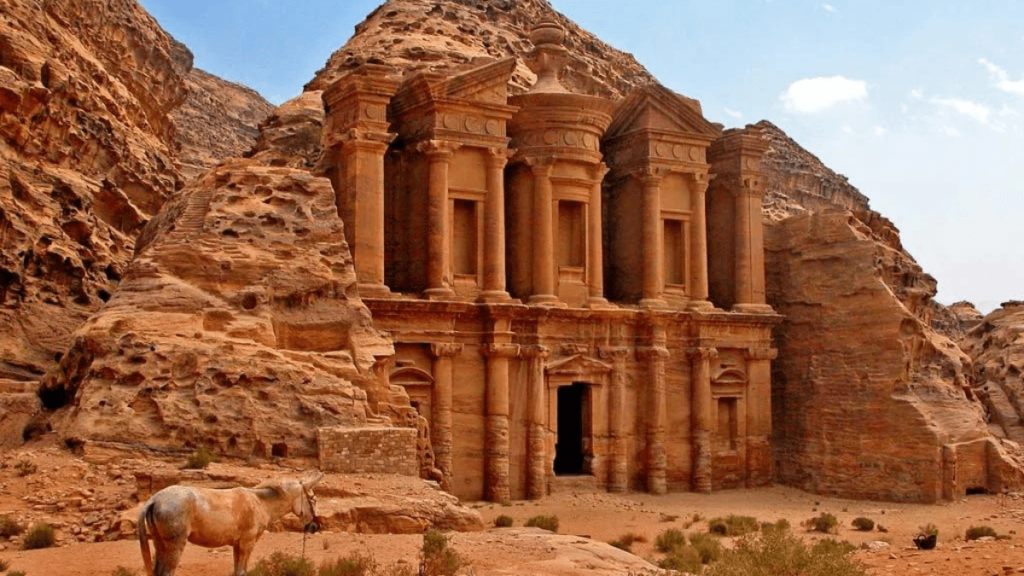In an ever-shrinking world where most destinations seem within reach, the thrill of Modern-Day Exploration continues to captivate the hearts and minds of adventurous souls. With the spirit of discovery alive and well, this exciting realm offers untold possibilities, encouraging us to venture beyond the beaten path and uncover Earth’s hidden secrets. Join us as we delve into the allure of the unknown, the personal growth that comes from exploration, and the experiences that make every journey a remarkable odyssey.
Unearthing Mysteries: The Adventure of Modern-Day Exploration
A. The human fascination with the unknown
Since the dawn of time, humans have been innately curious creatures, constantly seeking to uncover the mysteries of the world around them. This deep-seated fascination with the unknown has led to countless discoveries and innovations, shaping the course of human history. From early explorers venturing into uncharted territories to modern-day adventurers pushing the boundaries of human endurance, the allure of the unknown continues to captivate the human spirit, inspiring us to seek new experiences and broaden our horizons.
B. The role of exploration in history
Throughout history, exploration has played a pivotal role in shaping the world as we know it. Pioneering explorers like Christopher Columbus, Vasco da Gama, and Marco Polo embarked on perilous journeys across uncharted seas and vast deserts, opening up new trade routes and facilitating the exchange of ideas, culture, and knowledge between different civilizations. These intrepid adventurers not only expanded our understanding of the world but also laid the foundations for the modern era of globalization and interconnectedness.
C. The Modern-Day Exploration and its Impact on travel
In the modern era, exploration has evolved beyond the treacherous journeys of our ancestors, thanks to rapid advancements in technology and transportation. Today, we can traverse the globe with relative ease, uncovering previously inaccessible corners of the Earth and experiencing a vast array of diverse cultures and landscapes. As a result, travel has become an increasingly popular pursuit for those seeking to satisfy their curiosity and experience the thrill of discovery. This new age of exploration has given rise to a growing community of modern-day explorers, driven by a shared passion for adventure and the relentless pursuit of the unknown.
The New Age of Exploration
A. Technological advancements
1. Satellite imaging
The advent of satellite imaging has revolutionized the way we explore and understand our planet. High-resolution images captured from orbit allow us to map previously uncharted territories, identify potential archaeological sites, and monitor environmental changes on a global scale. These detailed visualizations have also opened up new possibilities for adventure-seekers, enabling them to pinpoint remote destinations and plan their expeditions with greater accuracy than ever before.
2. GPS navigation
Global Positioning System (GPS) technology has transformed the way we navigate and explore the world around us. By providing precise location data and real-time tracking, GPS devices have become an invaluable tool for modern-day explorers, allowing them to venture into remote areas with confidence and ease. This increased accessibility has spurred a surge in adventure travel, as more people embrace the freedom to explore off-the-beaten-path destinations.
3. Drones and remote sensing
Drones and remote sensing technology have brought a new dimension to exploration, enabling researchers and travelers alike to capture stunning aerial footage and gather valuable data from hard-to-reach locations. From monitoring wildlife populations to surveying inaccessible archaeological sites, these cutting-edge tools have expanded the boundaries of our knowledge and fueled our desire to uncover the secrets of Earth’s hidden corners.
B. Citizen science and crowdsourced exploration
The rise of citizen science and crowdsourced exploration has democratized the process of discovery, empowering everyday individuals to contribute to scientific research and exploration efforts. Through initiatives like the GlobalXplorer platform and Zooniverse, anyone with an internet connection can participate in activities such as identifying potential archaeological sites or monitoring wildlife populations. This collaborative approach to exploration has not only accelerated the pace of discovery but also fostered a sense of global community among like-minded explorers.
C. Social media and its influence on discovering hidden gems
Social media platforms have become powerful tools for sharing and discovering off-the-beaten-path destinations, as users post photos and stories from their adventures around the world. These platforms have given rise to a new generation of influencers, who inspire others to venture beyond well-trodden tourist trails and explore lesser-known gems. While social media has undeniably made it easier for travelers to find and share unique experiences, it has also raised important questions about the impact of mass tourism on fragile ecosystems and local communities.
Unlocking Earth’s Hidden Corners
A. Remote and unexplored destinations
1. Antarctic ice caves
The Antarctic ice caves represent a truly unique and otherworldly destination, largely untouched by human presence. These stunning subglacial formations, characterized by their ethereal blue hues and intricate ice structures, offer a glimpse into a hidden world beneath the frozen continent. Explorers willing to brave the harsh conditions and embark on a journey to these remote caves will be rewarded with an unparalleled experience that few have witnessed firsthand.
2. Amazon rainforest tribes
Deep within the heart of the Amazon rainforest, isolated tribes continue to live in harmony with their surroundings, largely undisturbed by the outside world. Visiting these communities offers a rare opportunity to learn about their unique customs, beliefs, and way of life, as well as the rich biodiversity that surrounds them. However, any exploration of these remote areas must be approached with utmost respect and sensitivity to ensure the preservation of their culture and the fragile ecosystem in which they reside.
3. Uncharted islands in the Pacific
The vast expanse of the Pacific Ocean is home to countless uncharted islands, many of which remain pristine and uninhabited. These idyllic paradises offer a rare chance for intrepid explorers to experience true isolation and immerse themselves in the unspoiled beauty of nature. However, access to these remote islands can be challenging, often requiring a combination of sea and air travel, as well as adherence to strict conservation guidelines to protect their delicate ecosystems.
B. Rediscovering lost cities and ancient civilizations
1. Angkor Wat, Cambodia
Once the center of the Khmer Empire, Angkor Wat in Cambodia is a breathtaking complex of temples and structures, hidden amidst dense jungle foliage. The largest religious monument in the world, this ancient city continues to captivate explorers with its intricate carvings, towering spires, and fascinating history. As efforts to conserve and restore the site progress, visitors have the opportunity to witness the ongoing process of rediscovery and preservation.
2. Petra, Jordan

The ancient city of Petra, nestled within the rugged landscape of Jordan, is a testament to the ingenuity and architectural prowess of the Nabataean civilization. Carved directly into the sandstone cliffs, this “Rose City” boasts intricate facades, tombs, and temples that have withstood the test of time. Exploring the winding trails and hidden passages of Petra transports visitors back to a bygone era, offering a glimpse into the lives of those who once inhabited this extraordinary city.
3. Machu Picchu, Peru
Perched high in the Andean mountains of Peru, the lost city of Machu Picchu stands as a testament to the architectural and engineering mastery of the Inca civilization. This UNESCO World Heritage site, surrounded by lush cloud forests and steep terraces, has captivated explorers for centuries. The trek to Machu Picchu, whether along the classic Inca Trail or alternative routes, offers a challenging yet rewarding adventure, culminating in the breathtaking sight of this ancient citadel.
C. Delving into the world’s least known ecosystems
1. Deep-sea trenches
The deep-sea trenches of our planet represent some of the most mysterious and least explored ecosystems on Earth. Inhabited by bizarre and highly adapted creatures, these extreme environments offer a fascinating window into the limits of life and the potential for discovery. As advances in deep-sea technology continue to progress, researchers and explorers have the opportunity to delve deeper into these enigmatic realms, uncovering the secrets that lie hidden in the abyss.
2. Subterranean caves
Subterranean caves provide a unique and often other
worldly environment for exploration and scientific study. These vast networks of underground chambers and passages are home to unique geological formations and a diverse array of cave-dwelling species, many of which have adapted to life in complete darkness. From the vast chambers of Mexico’s Sistema Huautla to the crystal-filled caves of Naica, these hidden worlds offer a thrilling and challenging frontier for both seasoned spelunkers and curious adventurers alike.
3. High-altitude cloud forests
The high-altitude cloud forests found in countries like Costa Rica, Ecuador, and Colombia are some of the world’s most biodiverse and least explored ecosystems. Characterized by their persistent cloud cover and lush, moss-draped vegetation, these enchanting landscapes provide a haven for a myriad of unique plant and animal species, many of which are found nowhere else on Earth. Exploring these remote, mist-shrouded forests requires determination and a keen sense of adventure, but the rewards are well worth the effort, as they offer an unparalleled opportunity to witness the beauty and fragility of these extraordinary ecosystems.
Becoming a Modern-Day Explorer
Developing the right mindset for exploration
1. Curiosity and open-mindedness
The foundation of any successful explorer is a curious and open-minded attitude. Embrace the opportunity to learn from new experiences, ask questions, and challenge your own assumptions. This mindset will not only enrich your travels but also foster a deeper understanding of the world and its diverse cultures.
2. Embracing uncertainty and adaptability
Exploration often involves venturing into the unknown, which can be both exciting and intimidating. Learning to embrace uncertainty and adapt to unforeseen circumstances is a crucial skill for any explorer. Cultivating a flexible attitude and a willingness to adjust your plans as needed will allow you to overcome challenges and make the most of your experiences.
3. Persistence and resilience
Exploration can be physically and mentally demanding, requiring persistence and resilience in the face of obstacles. Develop the determination to push through challenges, even when the going gets tough, and the ability to recover quickly from setbacks. These qualities will not only serve you well in your explorations but also contribute to personal growth and character development.
Acquiring essential skills and knowledge
1. Navigation and orienteering
Effective navigation and orienteering skills are essential for any explorer, whether you’re trekking through dense rainforest or navigating a bustling city. Invest time in learning how to use maps, compasses, and GPS devices, as well as honing your natural sense of direction. These abilities will increase your confidence and self-reliance in unfamiliar environments.
2. Wilderness survival and first aid
Exploration often takes you off the beaten path and into remote, challenging environments. Acquiring basic wilderness survival and first aid skills can be invaluable in ensuring your safety and well-being during your adventures. Consider taking courses in wilderness medicine, first aid, or outdoor survival to equip yourself with the knowledge and skills necessary to handle emergencies and unexpected situations.
3. Basic language and cultural understanding
Respectful and effective communication is key when interacting with local communities during your explorations. Familiarize yourself with the basics of the local language and culture before embarking on your journey. This understanding will not only enhance your travel experience but also help you build connections with the people you encounter and foster mutual respect.
Building a community of fellow explorers
1. Joining exploration clubs and societies
Connecting with like-minded individuals who share your passion for exploration can provide valuable support, resources, and camaraderie. Seek out exploration clubs, adventure groups, or societies in your area to network with fellow explorers and learn from their experiences.
2. Attending workshops and conferences
Workshops and conferences focused on exploration, adventure travel, and related topics offer a wealth of information and opportunities for personal growth. Attend these events to expand your knowledge, hone your skills, and connect with other explorers who share your interests and ambitions.
3. Engaging with online forums and social media groups
The internet provides a vast array of resources for modern-day explorers, from online forums and social media groups to blogs and podcasts. Engage with these platforms to stay informed about the latest trends and developments in exploration, share your own experiences, and learn from the insights and advice of fellow adventurers.
The Rewards and Personal Growth that Come from Exploration
Exploration offers numerous rewards, both tangible and intangible. The experiences and memories gained from venturing into the unknown enrich our lives, broadening our perspectives and fostering personal growth. As we navigate new environments and face unfamiliar challenges, we develop resilience, adaptability, and problem-solving skills that serve us well beyond our travels. Ultimately, exploration has the power to transform not only the way we view the world but also how we see ourselves.
The Importance of Fostering a Sense of Wonder and Curiosity
Maintaining a sense of wonder and curiosity is essential for continued growth and learning, both as individuals and as a society. Exploration feeds this innate desire to understand the world around us, pushing the boundaries of our knowledge and expanding our horizons. By fostering a spirit of curiosity, we not only enrich our own lives but also contribute to the collective advancement of humankind.
Encouraging Others to Embark on Their Own Journey of Discovery
As modern-day explorers, we have the opportunity to inspire and encourage others to embark on their own journeys of discovery. By sharing our experiences, knowledge, and insights, we can ignite the spark of curiosity in those around us, motivating them to venture beyond their comfort zones and uncover the wonders that lie hidden in Earth’s hidden corners. In doing so, we cultivate a global community of explorers united by a shared passion for adventure, discovery, and the pursuit of the unknown.

